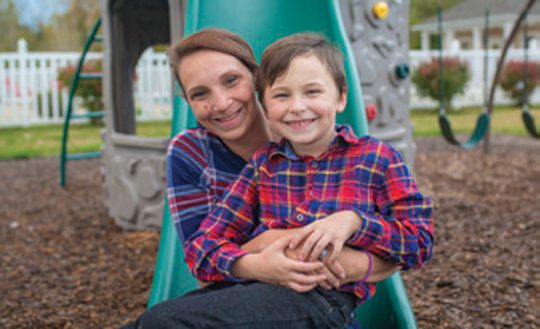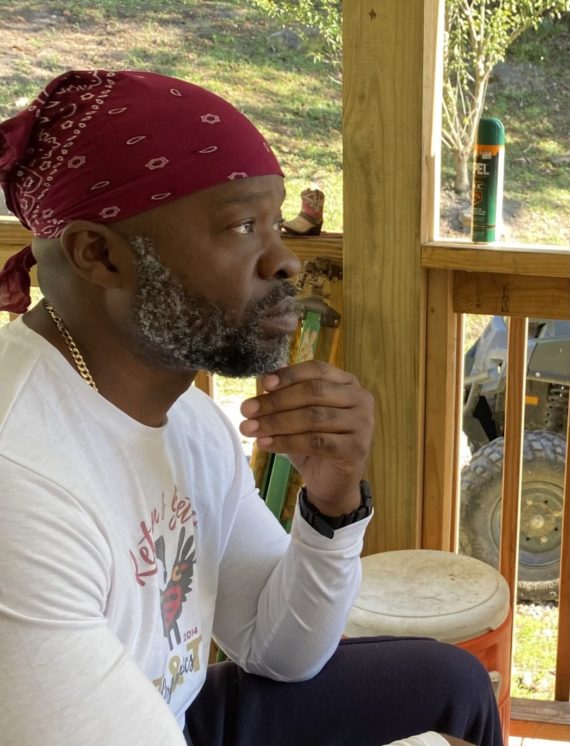This story is featured in the 2018 Hunger Report: The Jobs Challenge
Kristyn Davis doesn’t remember ever being hungry as a kid. She thinks she grew up middle class. Her parents worked in a factory, and her mother held down a second job as a server in a restaurant.
Davis, 28, works as a server at a restaurant in Vermilion, a lakeside community in northern Ohio, not far from where she grew up. She enjoys the work and thinks she is good at it, but it remains a challenge for her. Alcohol is flowing at the bar and she knows that some of the cooks and other servers are using. They invite her to come out with them after work, and she politely says no. She doesn’t share her past with anyone at the restaurant or talk about her struggles with addiction and the sober-living facility, Genesis by the Lake, where she’s a resident with her 5-year old son, Eric.
She tried to get a job at another restaurant, and the manager asked what made her different from other people interviewing for the position. She said, “I’ve never met any of those girls, but I can tell you that I don’t drink so I’m never going to tell you I’m hungover if you schedule me for the breakfast shift.” When she explained that she was in recovery, he ended the interview abruptly.
It wasn’t until Davis became addicted to opioids that she came to know about hunger. Her addiction started with a prescription for oxycodone after treatment for an ovarian Medicaid and SNAP have made it possible for Kristyn Davis and her son Eric to get healthy and stay nourished while she receives treatment for opioid dependence. cyst. From there she moved on to heroin and living on the street, going days without food. And she had already had her son Eric. Her family took care of him—and essentially protected him from her. When she got straight, she said, the withdrawal felt like she was dying, but the thought of Eric kept her going through the worst of it, and Eric is what keeps her going to this day.
All the residents at Genesis by the Lake are single mothers, and all have a history with opioids. Ohio has been affected more than most states by the nationwide opioid epidemic. In 2017, the number of deaths from opioids continued to soar. The state has even had to resort to using mobile meat lockers for the bodies of some of those who die of overdoses.
Medicaid covers the largest share of the cost of Kristyn and Eric’s stay at the facility. She says that she doesn’t know what they would do without the program. While Congress was debating health care reform during much of 2017, she tried to put Medicaid’s uncertain future out of her mind. Kristyn knows that she and Eric must leave Genesis by the Lake at some point. She knows the job at the restaurant doesn’t pay enough for her to afford her own place. She dreads being homeless again or exposing Eric to that. They are barely getting enough to eat now with their SNAP card, she says.
Medicaid and SNAP have made it possible for Kristyn Davis and her son Eric to get healthy and stay nourished while she receives treatment for opioid dependence.



